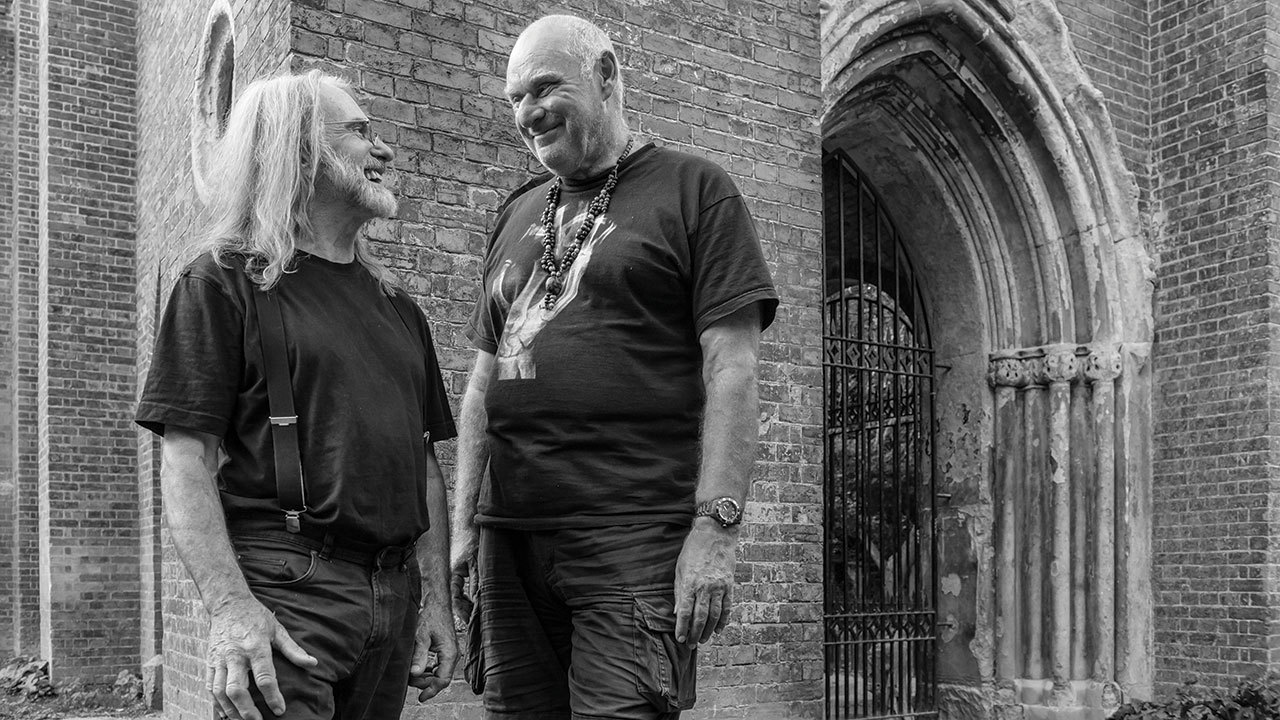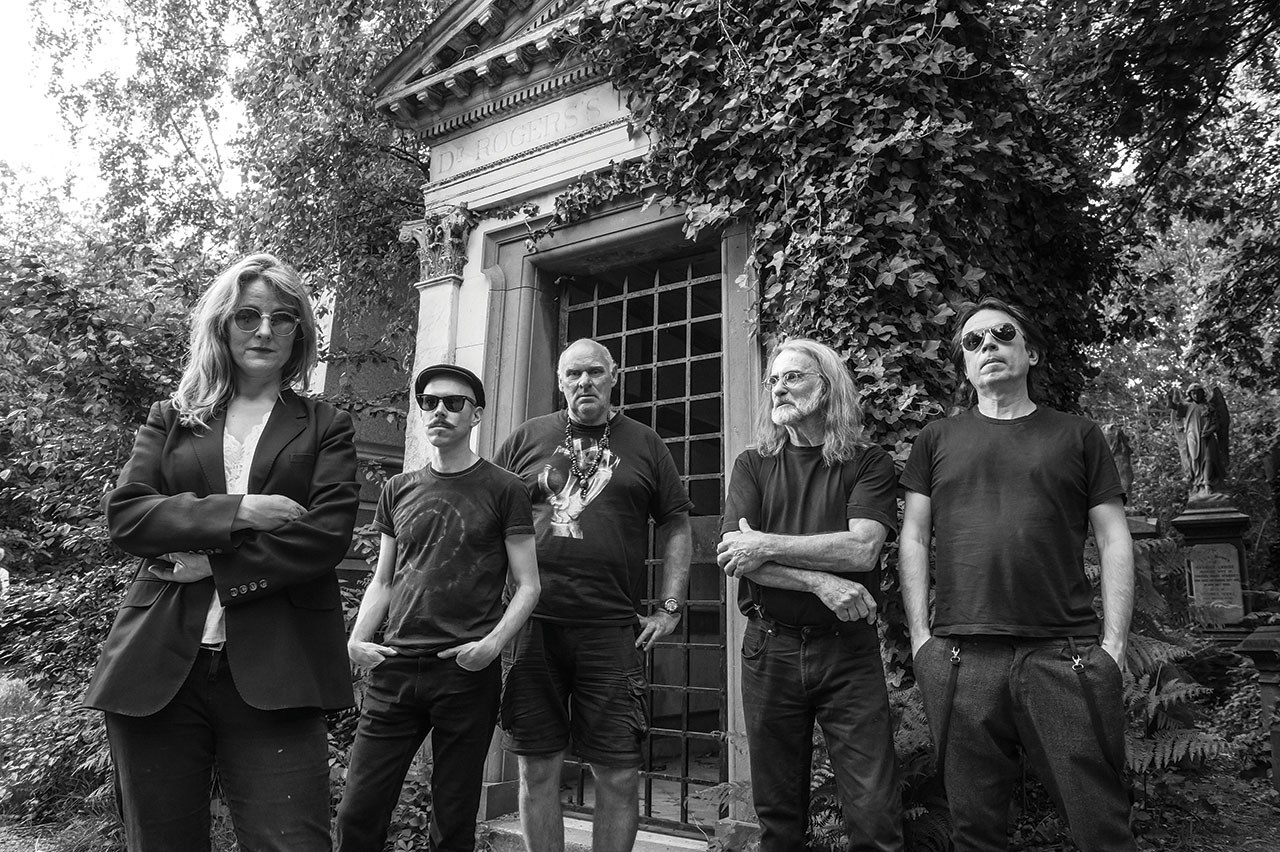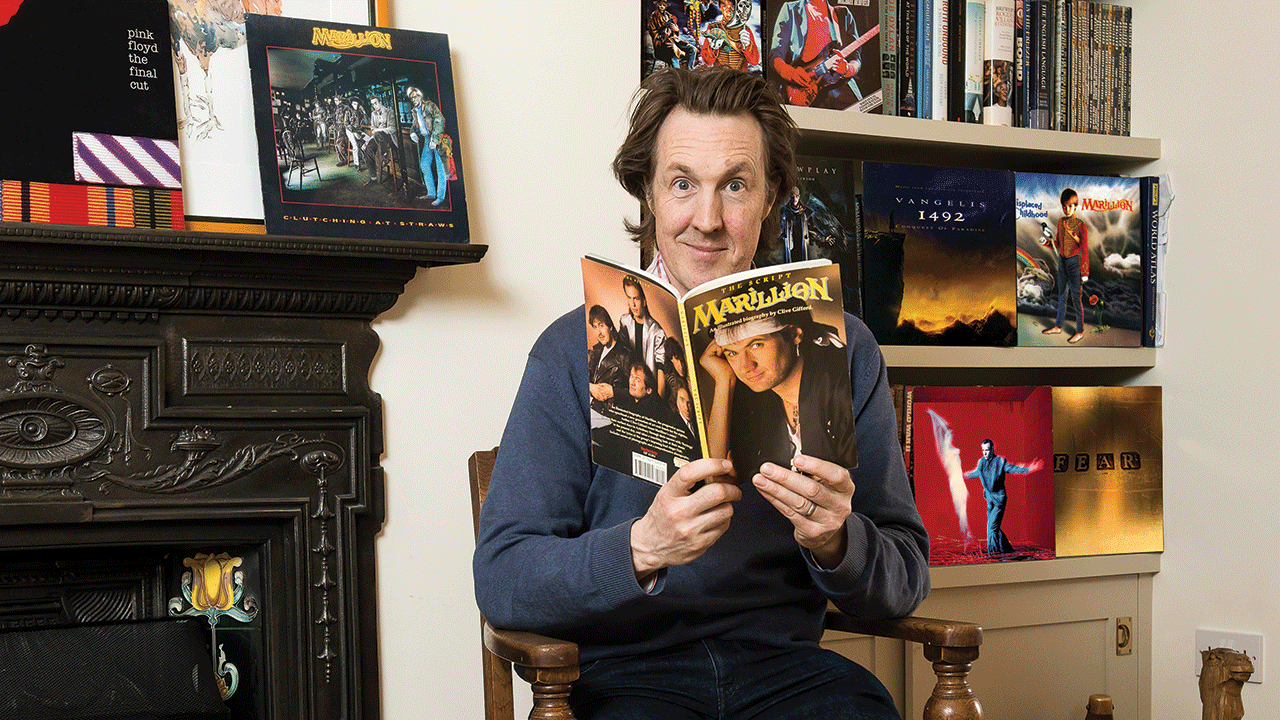
“I was never aware that we were doing something special,” says Jean-Hervé Péron, sounding genuinely mystified when Prog catches up with him at his farm in northern Germany. We’re here to discuss the new faUSt album, Fresh Air, as well as the pervasive impact the band’s recorded legacy has exerted upon a generation of musicians since the release of their 1971 debut album.
“Even now, after almost half a century, I’m always amazed when people write about how influential we’ve been. Why are we a spring of inspiration for other people? I’ve no idea, but of course I’m very happy and proud of it.”
Though grateful for such attention, Péron admits to being utterly baffled as to why artists as diverse as John Lydon, Sonic Youth, Joy Division, The Fall, Julian Cope, Radiohead and Henry Cow, to name but a few, have praised his band’s distinctive but decidedly idiosyncratic output. If the likes of Can and Neu! assaulted the senses with the precise efficiency of a surgical strike, Faust – infused with the performance art ethos of Dada and Fluxus as much as any musical passions – were more akin to the anarchist’s bomb, whose explosive outcomes were uncertain and indiscriminate.
“The 1960s and the beginning of the 70s are as much an influence for some of the people who are saying things about us. I think the German musical movement at that time was very strong and we had good reasons to be very strong because we wanted to be different from what had come before.”
Formed after journalist-turned-producer Uwe Nettelbeck was asked by Polydor to put together a homegrown band to rival the success of the incoming UK acts of the day, Faust were the unlikely outcome. Given a pile of cash and told to come up with an album, the band – Jean-Hervé Péron (bass), Hans-Joachim Irmler (keyboards), Arnulf Meifert (drums), Rudolf Sosna (keyboards, guitar), Gunther Wüsthoff (synth, saxes) and Werner ‘Zappi’ Diermaier (drums) – retreated to the bucolic surroundings of a studio in Wümme. There, with Nettelbeck at the controls, they created a defiant, stream-of-consciousness album featuring avant-garde tape manipulation and ragged approximations of rock tropes.
With an intense disregard to accessibility, the result was far removed from the commercial product Polydor had hoped for. Released in 1971, Faust eagerly scooped up ingredients of musique concrète, rock and pop, and combined them into a rich confection of intuitive connections and sprawling sonics. Even today it remains powerfully innovative.
Unsurprisingly dropped by Polydor after 1972’s Faust So Far yielded a similarly eclectic mix, it was 1973’s The Faust Tapes that really put the band on the radar. Signed to Virgin, the full-length album retailed for the price of a single, ensuring sales in excess of 50,000. Its abrupt jump-cuts in mood, mix of hi and lo-fi recordings, and scattershot distribution by virtue of its price meant it had a huge impact.
Sign up below to get the latest from Prog, plus exclusive special offers, direct to your inbox!
“Some chose to play frisbee with the LP and for others, it changed their lives,” says Péron. “Let’s say Faust was never afraid of strong contrasts. The times were intensely creative, full of ecstatic fun, enjoying drugs, sex, dogs, art and whatever came our way. The privilege of the youth, to be futile yet essential to society.”
As youth has given way to age, it’s little wonder that a group that’s been around in one form or another for nearly 50 years has been the subject of acrimonious break-ups and factions. For several years now, Péron and Zappi Diermaier’s incarnation of the band have styled themselves as faUSt, following a split with Hans-Joachim Irmler, which the bassist politely declines to discuss.
“It’s written as faUSt because it’s us – Zappi and me. There’s another Faust in the south of Germany, based on Joachim Irmler, but we don’t have contact and I want to make sure that people know which version of Faust they’re getting.”
As he talks, it’s clear there’s a bond between Péron and drummer Zappi, so named after the drummer’s admiration for Frank Zappa.
“I met Zappi at the end of 1968. We’ve been through so many things, good and bad. We’ve argued, we’ve split and so on. But we are the rhythm section. Sometimes we’re called the Krautrock rhythm section! There’s a certain bond between a bassist and a drummer, obviously. We are the tar that people walk upon, we are the stones, we are the earth.
“Our relationship is almost like a true love story between a man and a woman,” he adds. “Love and hate in almost equal measure.”

Another byproduct of age, aside from wisdom, is that often bands slow down and take things a little easier. At worst they fall back on their laurels and churn out a ‘greatest hit’ or two. Not faUSt. Their new album, Fresh Air, possesses many of the features of their classic back catalogue. From the slow-burn introduction of the title track through a series of industrial jolts and the beatific reveries of the closing piece, it contains the unmistakable imprint of the processes the pair have followed over the decades – earth-moving drones, primal rhythms, field recordings, poetic declamations and the surging build of momentum and its release.
Given its energy, Fresh Air is aptly named. Studio tracks laid down in Germany were combined with recordings from their recent 28-day US tour, where the duo were joined onstage by guests such as violinist Ysanne Spevack, singer-songwriter Barbara Manning and Die Krupps guitarist Jürgen Engler.
Having accrued hours of music, Péron says the resulting tapes were then “decanted” into seven tracks whose running order was designed to convey a particular narrative and dynamic sequence. “We had a story to tell. There’s a certain flow and continuity to the album. We found the spannungskurve – the curve of tension. We want people listening to get carried from one piece to another. It ends on a very long piece called Fish, which is one of our favourites. It’s an ur-theme, a primal thing, the music and the lyrics. It’s all about the sea and expectation and youth. It’s very primal. It takes the people who listen very smoothly and nicely to the end.”
Sifting through the myths and legends surrounding the band can be difficult. One tale goes that after Richard Branson paid the band half of what they were expecting for a gig, Péron then stripped off half his clothes for the show. “Yes, it’s true!” laughs Péron. “I think it was in London when I got naked on stage. I can’t recall if the reason was that Richard didn’t pay. I think the real reason was that Richard promised to have a huge PA and when we arrived, it was a small PA. I called Richard and said, ‘I thought we were getting a mega PA?’ He said, ‘No way,’ and that we’d have to play with what’s there. So I said, ‘If you don’t get the PA, I’m going to play naked,’ and he said, ‘Go ahead,’ so I did!
“I think after half a minute they dropped the curtain on us. This was the time where it was all supposed to be free sex and all this, but in the UK there was a bit of prudery. It was funny because we kept on playing behind the curtain. Eventually I put my pants back on and the show carried on as normal.”
What counts as ‘normal’ as defined by Péron is probably quite different to how other bands might understand the word. In their 70s heyday, Faust garnered a reputation for unconventional stage presentations.
“That’s still the biggest misconception about us, that we’re all about rampage and destroying TVs, playing loud and nasty. When promoters book us, they always ask if we’re going to use explosives or make fire on stage. So in a way, we’ve built our own prison, if you like, through building such a strong public image that we’re caught in it.”
In 1973, Péron rejected the much-proffered description that the band were avant-garde, saying, “Faust isn’t avant-garde. We’re not trying to be ahead of our time or beyond our time – we’re just trying to be here and now.”
Is that something that applies to faUSt now? “Yes, totally,” Péron says. “One thing is for sure: we don’t want to be behind our time. We want to be here and now. This is not a philosophical decision. It’s just a fact.”
Fresh Air is out now on Bureau B. For more information, see www.bureau-b.com/faust.php.
Sid's feature articles and reviews have appeared in numerous publications including Prog, Classic Rock, Record Collector, Q, Mojo and Uncut. A full-time freelance writer with hundreds of sleevenotes and essays for both indie and major record labels to his credit, his book, In The Court Of King Crimson, an acclaimed biography of King Crimson, was substantially revised and expanded in 2019 to coincide with the band’s 50th Anniversary. Alongside appearances on radio and TV, he has lectured on jazz and progressive music in the UK and Europe.
A resident of Whitley Bay in north-east England, he spends far too much time posting photographs of LPs he's listening to on Twitter and Facebook.

